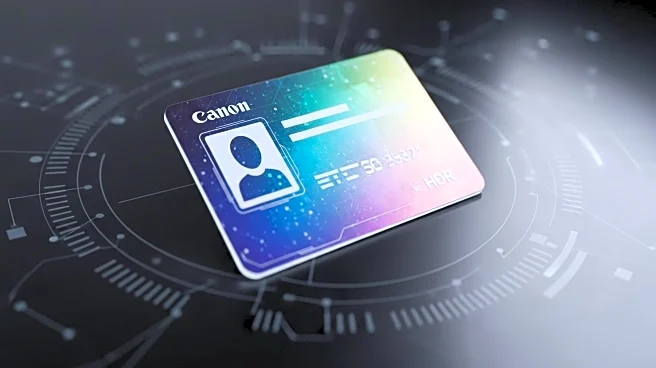What is the story about?
What's Happening?
State and local governments are increasingly adopting modern resident identity solutions to address challenges such as siloed systems, sophisticated cyber threats, and accessibility gaps. These solutions aim to streamline access to public services, improve security, and restore public trust. By implementing a unified resident identity framework, governments can offer secure, seamless access to essential services like healthcare, benefits, and licensing. Companies like Okta and Socure are providing technologies that facilitate identity verification, authentication, and access management, helping governments to protect public funds from fraud and extend services to underserved communities.
Why It's Important?
The modernization of resident identity systems is crucial for enhancing the efficiency and security of government services. As cyber threats become more advanced, governments face pressure to protect resident data while ensuring smooth access to services. A unified identity framework reduces the risk of identity theft and fraud, which can strain government resources and erode public trust. By adopting zero-trust architecture and modern authentication standards, governments can improve service delivery, reduce operational costs, and comply with federal security frameworks. This approach not only enhances security but also supports broader digital transformation efforts, making government services more accessible and user-friendly.
What's Next?
Governments are expected to continue expanding their identity platforms to include more services under a single, secure login. This will involve integrating new solutions with existing infrastructure and automating identity management to ensure compliance with federal standards. As agencies adopt modern identity strategies, they will likely focus on reducing manual reviews, providing adaptive authentication, and enhancing digital inclusion. The ongoing modernization efforts will aim to deliver faster, safer, and more inclusive services to communities, ultimately supporting long-term digital transformation and improving public trust in government services.
Beyond the Headlines
The shift towards modern resident identity systems has deeper implications for privacy and data security. As governments navigate complex state laws and federal standards, they must balance strong security measures with a smooth user experience. The adoption of zero-trust architecture represents a significant change in how identity is managed, emphasizing continuous verification and fine-grained controls. This approach not only mitigates risks but also fosters transparency and accountability, allowing agencies to track performance and respond quickly to audits or investigations. The modernization of identity systems is not just a technical fix but a strategic move to rebuild public trust and ensure secure access to critical services.
















